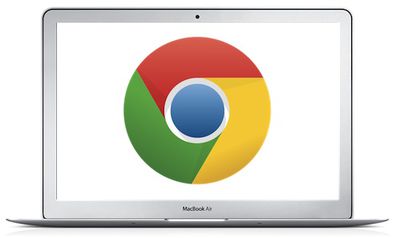Version 57 of the desktop Chrome web browser includes a new CPU throttling feature that Google says will lead to 25 percent fewer busy background tabs and help reduce overall power consumption.
Charges that Chrome is a battery hog have long dogged Google's browser, leading the company to make efficient power usage a key pillar in its long-term development strategy for the software. Throttling background tabs by limiting Javascript timers is the latest attempt by Google to improve the browser's reputation.

Javascript timers are often used by news sites and social media networks to update web page content in tabs, which uses up valuable CPU cycles. From version 57 of the browser, Chrome will delay timers in individual background tabs if their power usage oversteps the mark. Tabs that play audio or use real-time connections won't be affected, however.
Chrome has focused on improving the user experience by throttling tab performance for many years. Like many browsers, Chrome has limited timers in the background to only run once per second. Via the new throttling policy, Chrome 57 will delay timers to limit average CPU load to 1% of a core if an application uses too much CPU in background. Tabs playing audio or maintaining real-time connections like WebSockets or WebRTC won’t be affected.
According to Google, the new throttling mechanism leads to fewer busy background tabs, which typically consume a third of Chrome's power usage on desktop computers. In the long term, Google aims to fully suspend timers in background tabs and instead rely on new APIs to do the work instead.
Chrome 57 is available to download for Mac users now. Existing users can update by selecting Chrome -> Preferences via the menu bar and clicking the About section. Users downloading Chrome for the first time will automatically receive the updated version from the Chrome download page. An update for the iOS browser app has also been released with a new Read Later option.
























Top Rated Comments
Don't call him a lier, I ran out of RAM and I too have 16 GB RAM, any App nowadays runs fine even with a bit less RAM, if it needs more it uses VM and most of Macs today have fast SSD storage so you don't see as much difference, it used to be much slower when Hard disks were used not too long ago and some still have them.
As above, what is normal use to you does not need to be normal use for others.
I myself have more than 30 tabs open at any time, it uses quite a bit RAM, but I have enough, and even when it's full it's not much of a deal nowadays with fast SSD's inside.
I'm noticing a trend here. Does Google not know how to optimize code?
On Mac and iOS safari gives me no problems so I use them. At work on Windows I use Chrome. What am I missing out on?